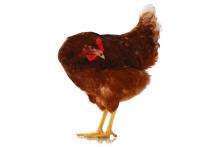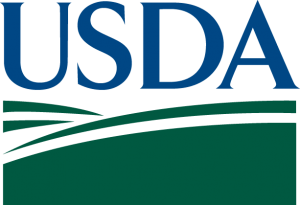Arizona Sued Over Cage-Free Eggs Rule on Restaurateur’s Behalf
Arizona small business owner Grant Krueger was already running his restaurants on razor-thin margins before the state Department of Agriculture mandated that only cage-free eggs be sold in Arizona. The Goldwater Institute and Pacific Legal foundation have filed suit on Krueger’s behalf, challenging the agency’s mandate, which they say violates the Arizona Constitution.
Over Krueger’s 34 years in the restaurant business, said he’s seen first-hand the impact of reckless government policy, including inflationary pressures, wage mandates and COVID decrees. Now, at a time when restaurants and restaurant-goers alike are already struggling with inflated food prices, the new cage-free egg rule will increase costs, while poaching his rights and scrambling the rule of law, according to Goldwater.
“I had no seat at the table for any of this,” said Krueger, who buys more than 2,000 eggs per week to supply his three Tucson-area restaurants, Union Public House, Reforma Modern Mexican and Proof Artisanal Pizza. “Unaccountable, unelected bureaucrats shouldn’t be able to arbitrarily impose these kinds of harmful mandates on small business owners like me.”
The egg rule wasn’t passed by the Arizona Legislature. Cage-free eggs are more expensive to produce than conventional methods—so much so that the mandate could impose up to $66 million in increased costs on Arizonans, according to Goldwater. But rather than go through the proper lawmaking process on critical policy questions, AZDA bureaucrats usurped the legislature’s lawmaking authority, creating a brand-new policy that affects the entire state—all while acting with zero checks and balances.
According to the Humane League, Arizona was the 10th state to enact such a mandate. “Arizona prohibited the production and sale of eggs from caged hens, joining nine other states in protecting egg-laying hens at the state level: Utah, Colorado, Michigan, Washington, Oregon, California, Massachusetts, Rhode Island, and Nevada,” according to the Humane League.
“In the fight to free hens from battery cages—brutal metal enclosures as small as filing cabinet drawers—state-wide legislation and regulation is one of the most powerful ways to enact change,” according to the Humane League’s website. “In writing new regulations to protect egg-laying hens from a lifetime of mistreatment and misery in confinement, Arizona is making crucial progress for chickens, not just within the Grand Canyon State but also beyond its borders.
“By 2025, all eggs laid or sold within the state of Arizona must be 100 percent cage-free. This means that, once the rule is fully implemented, over seven million hens will be spared from life in extreme confinement every single year,” according to the Humane League.
“According to the new rule, Arizona farmers are required to provide egg-laying hens with at least one square foot of floor space—an important upgrade to the harsh conditions of battery cages, which confine each bird to an area no bigger than the surface of a small iPad per animal,” according to the Humane League.
According to the Arizona Department of Agriculture, small producers with fewer than 20,000 egg-laying producing hens are exempt from this cage size requirement standard. The rule had been slated to be enforced in October 2022, but a delay was necessary due to the national egg shortage caused by avian influenza. The mandate does apply to retail sales. Egg producers must apply for and receive certification and be registered with the AZDA before selling their eggs.
“The Arizona Constitution is clear: lawmaking is the job of Arizonans’ elected representatives, not unelected regulators,” said Goldwater Staff Attorney John Thorpe. “But bureaucrats are trying to go around the lawmaking process to impose a policy that only helps the government’s favored special interests while hurting everyone else.”
“The legislature cannot give regulatory agencies like the Arizona Department of Agriculture the power to make the law,” said Adi Dynar, an attorney at Pacific Legal Foundation. “Sweeping policies, like the cage-free egg rule, which substantially increase prices for businesses and consumers, must be made by the people’s representatives, not bureaucrats.”
Read the lawsuit here.
For more news of interest to the specialty food industry, subscribe to Gourmet News.
Doctors Group Files Complaint Over ‘Wood Milk’ Ad
 In April, the USDA’s Agricultural Marketing Service approved an ad that features “The White Lotus” actress Aubrey Plaza mocking plant milk. But the now-viral “Wood Milk” ads violate laws forbidding federal agricultural promotions from depicting products in a negative light, according to a complaint filed with the USDA Office of Inspector General by the Physicians Committee for Responsible Medicine, a nonprofit public health advocacy organization.
In April, the USDA’s Agricultural Marketing Service approved an ad that features “The White Lotus” actress Aubrey Plaza mocking plant milk. But the now-viral “Wood Milk” ads violate laws forbidding federal agricultural promotions from depicting products in a negative light, according to a complaint filed with the USDA Office of Inspector General by the Physicians Committee for Responsible Medicine, a nonprofit public health advocacy organization.
Using a fictitious product named “Wood Milk” as a stand-in for plant-based milks, the ads deride plant-based milks.in
The “Wood Milk” campaign violates the statutory prohibition against advertising that is “false or misleading or disparaging to another agricultural commodity” and the regulatory prohibition against “unfair or deceptive acts or practices with respect to the quality, value or use of any competing product,” the Physician Committee’s complaint says.
It also violates a federal law that says USDA milk advertising dollars can’t be used to influence legislation or government action or policy. On Feb. 23, the FDA announced new proposed guidelines that would allow plant-based milks to be labeled using the word “milk.” The agency invited the public to submit comments by April 24, before final guidelines would be established. The “Wood Milk” ad campaign was launched before that comment period closed. On May 1, the comment period was extended to July 31. The “Wood Milk” campaign has run continuously since then.
The USDA’s Agricultural Marketing Service administers the federal commodity promotion and research programs, commonly referred to as “checkoff” programs. The USDA approves all “checkoff” advertising and is responsible for reviewing and verifying all nutritional claims.
The Physician Committee’s complaint requests that the Office of Inspector General issue a recommendation that the “Wood Milk” ads stop and that the milk “checkoff” issue corrective advertising that explains the benefits of plant-based milks.
“The ‘checkoff’ is a government program,” said Physicians Committee President Neal Barnard, MD, FACC, adjunct professor of medicine at George Washington University School of Medicine. “It is one thing for it to promote cow’s milk. It is quite another thing to mock the products that many nonwhite Americans choose for health reasons.”
For more news of interest to the dairy industry, subscribe to Gourmet News.








